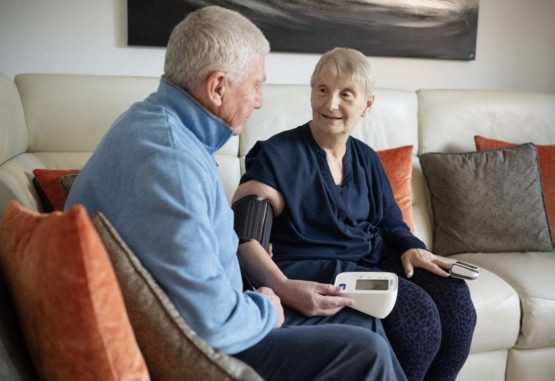The UK government is planning to expand the use of virtual wards, with the goal of treating up to 50,000 patients a month.
The expansion is part of a larger plan to reduce pressure on the NHS, reduce waiting times, and improve care for patients.
Virtual wards are seen as a safe and efficient alternative to hospital care, particularly for frail and elderly patients.
The government has announced it aims to scale up virtual wards, with an ‘ambition’ to treat up to 50,000 people a month and expand their use for falls and frail patients.
As well as expanding virtual wards the government says it will expand community services, including falls and frailty teams and urgent community response teams.
NHS England states there is “growing evidence that these are a safe and efficient alternative to hospital care, particularly for frail patients”.
The announcements come as part of efforts to reduce intense pressures and record waiting times for NHS services, and ongoing strike action by nurses and ambulance staff.
The level of ‘ambition’ on virtual wards is very significant and would represent a five-fold increase on current volumes. Some 10,000 patients thought to have received care through virtual wards or hospital at home initiatives in December 2022.
Health and Social Care Secretary Steve Barclay said: “The health and care service is facing significant pressures and while there is no quick fix, we can take immediate action to reduce long waits for urgent and emergency care.”
He added: “This includes rolling out more services to help with falls and frailty as well as supporting up to 50,000 patients a month to recover in the comfort of their own homes. Not only will patients benefit from better experiences and outcomes, it will also ease pressure on our busy emergency departments.”
No details of any additional investment have yet been provided.
The government and NHS England will publish an Urgent and Emergency Care Plan today, which it says will reduce waiting times and improve care for patients.
An NHS England release trailing the report over the weekend stated: “Tens of thousands of elderly and vulnerable people will receive tailored support at home each month as part of a new NHS plan to curb unnecessary trips to hospital, help at-risk patients receive faster treatment and improve ambulance response times.”
The statement attributed the record pressures primarily to demographics. “Demand on the NHS is rising, driven by a number of factors including an ageing population with increasingly complex needs.
“A key part of the plan will be reforming the way the NHS provides services to adapt to the population’s changing needs, including by expanding care outside of hospitals.
The release said additional falls and frailty teams would be in place by ‘next winter’, these will use technology to monitor patients to reduce their risks of falls.
These teams join up care by connecting hospital expertise with emergency services and use technology to reduce the risk of falls by remotely monitoring patients.
The release states that supporting vulnerable patients at home and in the community may lead to up to 20% of linked emergency hospital admissions caused being avoided.
The NHS has already introduced a patchwork of various virtual ward initiatives and pilots to aid with elective recovery efforts following the Covid-19 pandemic.
According to NHS England, there has been an increase of 7,000 patients cared for through virtual wards, a 50% increase since last Summer. It promises a further 3,000 ‘hospital at home’ beds will be created before next winter.
Overall, the plan will include an ambition to see up to 50,000 people supported a month – up from around 10,000 in December 2022.
High-tech virtual wards currently support frail elderly patients or those with acute respiratory infections and cardiac conditions. Patients are reviewed daily by the clinical team who may visit them at home or use video technology to monitor and check how they are recovering.
NHS England Chief Executive Amanda Pritchard said: “Boosting care in the community and treating more people at home is key to recovery – it is better for patients and their families, as well as easing pressure on NHS services.”
Sarah McClinton, President of ADASS said: “We recognise the importance of expanding and joining up health and care in people’s homes to stop them needing to go into hospital and enabling people to leave hospital safely with therapies and support to recover.
“Key to achieving this will be co-producing plans across health and social care and investment in the workforce in social care and community services and we look forward to engaging with this.”
An increasing number of NHS trusts are trialling virtual wards, particularly for patients with frailty. In December, Solent NHS Trust announced it is piloting virtual wards in conjunction with Doccla, offering patients with frailty personalised care to help reduce hospital admissions.

